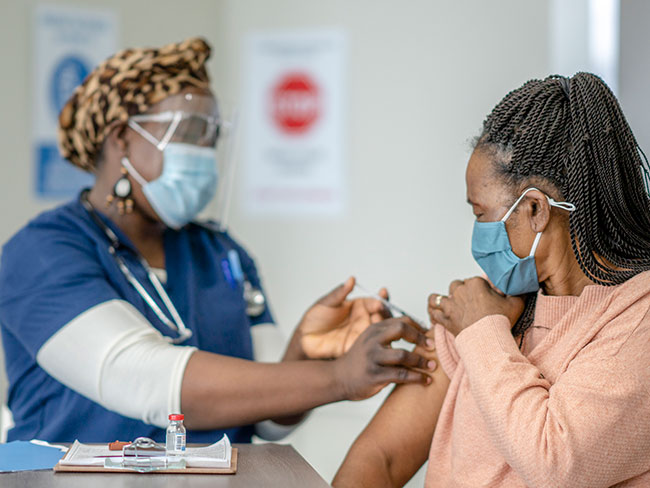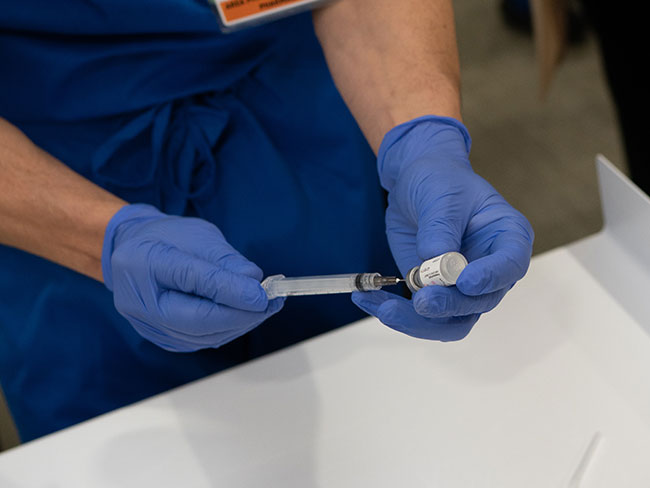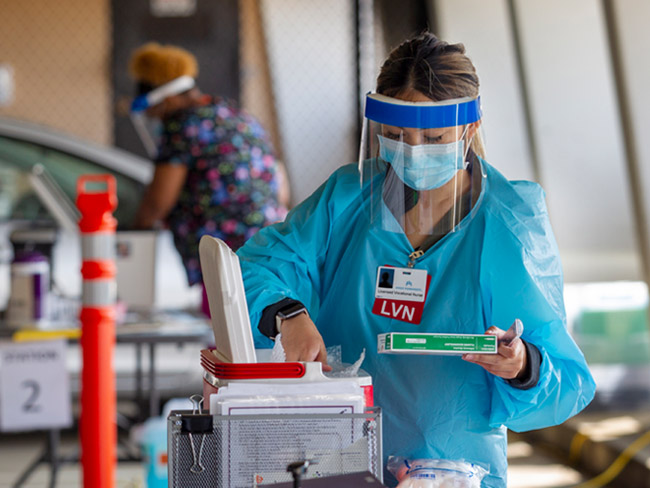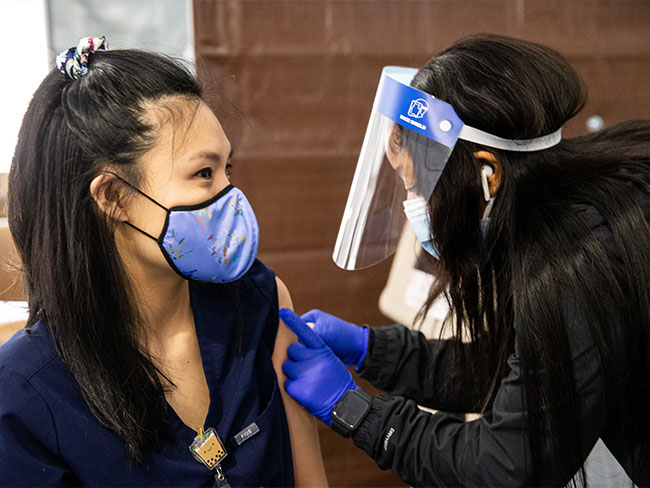Omicron variant infections less severe than delta
Kaiser Permanente study shows that coronavirus infections caused by omicron variant had less severe outcomes and shorter hospital stays than those caused by delta.
PRESS RELEASE
Contact: Elizabeth Schainbaum
elizabeth.a.schainbaum@kp.org
510-406-1828
Terry Kanakri
terry.kanakri@kp.org
626-405-2652
PASADENA, Calif. — A study of patients at Kaiser Permanente in Southern California showed that when both the delta and omicron variants were circulating in December 2021, patients who had coronavirus infections with the omicron variant had substantially less risk of severe illness and shorter hospital stays than those infected with the delta variant. The study was published June 8, 2022, in Nature Medicine.
“Patients infected with the omicron variant were 41% less likely to be admitted to the hospital, and had a 25% shorter stay in the hospital than those infected with the delta variant,” said the study’s senior author, Sara Y. Tartof, PhD, an epidemiologist with the Kaiser Permanente Southern California Department of Research & Evaluation and a faculty member of the Kaiser Permanente Bernard J. Tyson School of Medicine, both in Pasadena. “Encouragingly, this reduction in severity has continued to hold today since the emergence of the BA.2/BA2.12.1 omicron subvariant, which accounts for most cases occurring in California.”
The study was conducted in partnership with scientists from the Centers for Disease Control and Prevention and the University of California, Berkeley.
“The lower severity of disease associated with omicron was most striking among unvaccinated cases, which reinforces the idea that what we see is not only due to prior immunity,” said lead author, Joseph A. Lewnard, PhD, an epidemiologist with the University of California, Berkeley. “Although vaccination has been less protective against omicron variant infection, we did identify clear evidence of protection against progression to severe disease.”
Researchers on this study sought to understand how new coronavirus variants differ in clinical severity or in susceptibility to vaccine-derived immunity to help inform public health approaches. The primary aim was to understand how the omicron variant affected the severity of illness. The first known omicron variant infection in the United States was reported in California on December 1, 2021, and by January 2, 2022, omicron had become the dominant variant.
Using a test that looks for a specific indicator of the omicron variant, the researchers were able to identify 222,688 cases of the omicron variant and 23,305 cases of the delta variant out of among Kaiser Permanente members in Southern California who were tested in outpatient settings between December 15, 2021, and January 17, 2022. In another analysis of the period between February 3 and March 17, 2022, the researchers identified 1,905 cases with the emerging BA.2 omicron subvariant and 12,756 with the earlier BA.1 subvariant.
- Hospital admissions occurred among 991 (4.5%) and 241 (10.3%) patients with omicron and delta variant infections, respectively.
- The median hospital stay for patients who had COVID-19 symptoms and omicron variant infections was roughly one day shorter than for those with delta infection.
- Among patients with omicron infections, 0.1% needed mechanical ventilation to help them breathe, 0.2% received intensive care, and 0.1% died. Among patients with the delta variant, 0.7% required mechanical ventilation, 1.1% received intensive care, and 0.8% died.
- Omicron variant infections were more often detected among patients with prior coronavirus infection, and COVID-19 vaccinations.
“Even with the lower severity of the omicron variant, high rates of infection due to efficient spreading and its ability to evade immunity can still stress the health care system, so we need to continue to work on strategies to increase vaccination, particularly as masking declines,” Tartof said. “While omicron is more likely to result in infection among vaccinated people, it is much less likely to result in hospitalization, intensive care unit admissions, or death.”
Tartof noted that the study also shows how the variants can shift in impact on health and health care. “We can’t predict what the next variant may bring, but for now we know our best defense is still vaccination.”
About Kaiser Permanente
Kaiser Permanente is committed to helping shape the future of health care. We are recognized as one of America’s leading health care providers and not-for-profit health plans. Founded in 1945, Kaiser Permanente has a mission to provide high-quality, affordable health care services and to improve the health of our members and the communities we serve. We currently serve approximately 12.6 million members in 8 states and the District of Columbia. Care for members and patients is focused on their total health and guided by their personal Permanente Medical Group physicians, specialists, and team of caregivers. Our expert and caring medical teams are empowered and supported by industry-leading technology advances and tools for health promotion, disease prevention, state-of-the-art care delivery, and world-class chronic disease management. Kaiser Permanente is dedicated to care innovations clinical research, health education, and the support of community health.




























